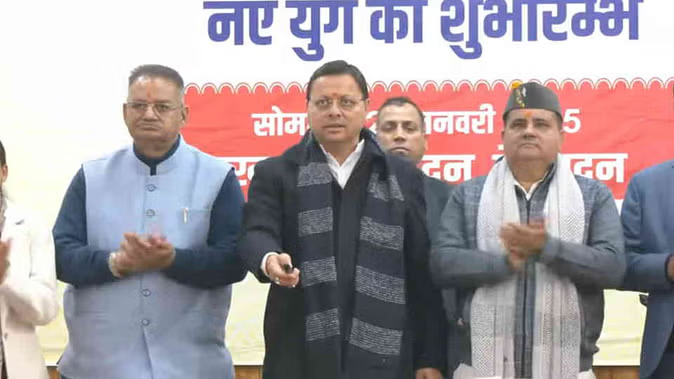Uniform Civil Code (UCC) Implementation: A Historic Step by Uttarakhand
Uttarakhand has created history by becoming the first state in India to implement the Uniform Civil Code (UCC). On January 27th, Chief Minister Pushkar Singh Dhami inaugurated the UCC portal and officially launched its rules at the Chief Servant House. The notification was issued the same day, marking a landmark moment for the state and the nation.
The Journey of UCC in Uttarakhand
- Expert Committee Formation: An expert committee for UCC was constituted on May 27, 2022.
- Report Submission: The committee submitted its report on February 2, 2024.
- Assembly Approval: The bill was passed in the state assembly on March 8, 2024.
- Presidential Assent: The Act received the President’s approval on March 12, 2024.
- Final Implementation: After extensive preparations, the UCC was implemented with online systems to streamline processes.
Simplified Registration Process
Chief Secretary Radha Raturi emphasized the hard work behind the UCC manual, which simplifies the registration process. UCC Committee Chairman Shatrughan Singh stated, “The system will come to you, making registration seamless and user-friendly.”
Historic Significance
Chief Minister Dhami called it a historic day for Uttarakhand and the country, highlighting its potential to ensure equal rights for all citizens, particularly women across all religions.
Key Changes Introduced by UCC
- Uniform Laws for All: Marriage, divorce, alimony, and inheritance laws will now be the same for all communities.
- Mandatory Registration:
- Marriages and divorces after March 26, 2010, must be registered.
- Non-registration may result in a fine of up to ₹25,000.
- Registration is mandatory for those in live-in relationships.
- Equal Rights for Women:
- Women will have equal grounds for divorce.
- Practices like Halala and Iddat will be prohibited.
- Equal property rights for sons and daughters.
- Legitimacy of Children:
- Children from live-in relationships, adoption, surrogacy, and assisted reproductive technology will be considered legitimate.
- Illegitimate children will have the same rights as biological ones.
- Marriage Regulations:
- Minimum marriage age: 21 for boys, 18 for girls.
- Second marriages are prohibited while both spouses are alive.
UCC Inspiration from Global Practices
The committee studied the UCC implementations of countries like Saudi Arabia, Turkey, Indonesia, Nepal, France, Japan, and Canada.
Positive Social Impact
The UCC is expected to promote equality, streamline legal processes, and modernize societal practices. As CM Dhami stated, “This is a moment of pride for Devbhoomi, and it showcases our commitment to fulfilling promises.”
Uttarakhand’s initiative sets a precedent for other states, marking the beginning of a transformative era in India.
